A European Council on foreign policy with a scent of an economy
Ralitsa Kovacheva, September 15, 2010
 On September 16 EU leaders will gather in Brussels, after being invited by European Council President Herman van Rompuy. In a time when the first candidates for EU ambassadors have been approved, the topic of the Council is precisely the European external relations. In his invitation to the leaders, President Van Rompuy says that special attention will be paid to EU's Asian partners, the situation in Pakistan, the November G20 summit in Seoul, the relations with the US. In the invitation, however, there is a protocol gaffe, because the High Representative for foreign policy Catherine Ashton who will brief the leaders about her Asian tour, is
On September 16 EU leaders will gather in Brussels, after being invited by European Council President Herman van Rompuy. In a time when the first candidates for EU ambassadors have been approved, the topic of the Council is precisely the European external relations. In his invitation to the leaders, President Van Rompuy says that special attention will be paid to EU's Asian partners, the situation in Pakistan, the November G20 summit in Seoul, the relations with the US. In the invitation, however, there is a protocol gaffe, because the High Representative for foreign policy Catherine Ashton who will brief the leaders about her Asian tour, is  called a President of the European Commission, while she is a Vice President.
called a President of the European Commission, while she is a Vice President.
Although dedicated to foreign policy, the Council will debate seriously on economic governance. Van Rompuy will report on the progress of the task-force he presides. It is expected the proposals, on which there is consensus, to be officially approved. The final report will be presented to EU leaders at the Council in the end of October.
So far, the European Economic Semester has received the final support of the Ecofin. The Semester envisages a peer review of Member States' mid-term budgetary priorities and reform programmes. It will start in March and will end in July so that national parliaments would have enough time to approve the budgets for next year in the autumn.
However, there is a paradox, because there was political resistance against the semester because it would give more power to Brussels in shaping national budgetary policies. Even now there are a lot of politicians (including in the European Parliament) who think the new mechanism is harming democracy because it deprives national governments and parliaments from their last word on their own budgets.
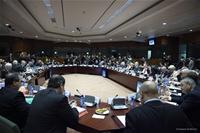 According to analysts, though, the new mechanism would change nothing because, again, there are no efficient sanctions for the countries that refuse to take into account the recommendations of the Council. EurActiv quotes the analyst Daniel Gros, Director of the Centre for European Political Studies, who says that the new system would not change anything and the key question is whether Member States would really comply with Brussels' recommendations.
According to analysts, though, the new mechanism would change nothing because, again, there are no efficient sanctions for the countries that refuse to take into account the recommendations of the Council. EurActiv quotes the analyst Daniel Gros, Director of the Centre for European Political Studies, who says that the new system would not change anything and the key question is whether Member States would really comply with Brussels' recommendations.
The Bruegel Institute notes for the Zsolt Darvas that Brussels' recommendations will not be obligatory and the Commission will have to rely on "moral pressure" on Member States. "Our view is that the semester will have very limited impact as without clear sanctions for those who break the budget rules, the whole mechanism lacks teeth. But tougher measures would be very difficult to achieve politically," said Vincenzo Scarpetta, Researcher at OpenEurope.
 The Commission envisages using temporary or permanent freezing of EU structural funds as sanctions, as well as imposition of a deposit with an interest rate for the euro area members. There is, however, a strong resistance against these sanctions and even exceptions have been proposed already. France and Germany have proposed agriculture subsidies to be excluded from the sanctions.
The Commission envisages using temporary or permanent freezing of EU structural funds as sanctions, as well as imposition of a deposit with an interest rate for the euro area members. There is, however, a strong resistance against these sanctions and even exceptions have been proposed already. France and Germany have proposed agriculture subsidies to be excluded from the sanctions.
9, mostly Eastern European countries, proposed pension reform costs to be excluded from the calculation of budget deficits (main reason for the imposition of sanctions). The European Commission has still not commented on the proposal.
Paris and Berlin also proposed the imposition of political sanctions for countries-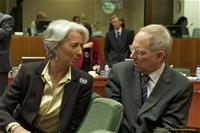 violators - like deprivation of voting rights in the Council but only for euro area members. Their proposal has been recently supported by the President of the European Central Bank Jean-Claude Trichet. In order to avoid the need for changes in the Treaty, both countries propose eurozone members to reach a political agreement, detailing the conditions for deprivation of voting rights.
violators - like deprivation of voting rights in the Council but only for euro area members. Their proposal has been recently supported by the President of the European Central Bank Jean-Claude Trichet. In order to avoid the need for changes in the Treaty, both countries propose eurozone members to reach a political agreement, detailing the conditions for deprivation of voting rights.
Many analysts, however, say that the real problem that the Semester does not solve, is the big differences in competitiveness of European economies. Herman van Rompuy's task-force and the Commission have already proposed the creation of a bunch of indicators which could serve as early warnings for volatility and a set of recommendations to Member States. The proposals are not finalised yet and, according to European diplomats, are in a deadlock. EUobserver quoted diplomats as saying that Van Rompuy's task-force has been "depleted" of ideas and the European Semester is the only thing that will be approved at this stage.
But according to the former German Minster of Finance Theo Waigel, the problem is not in the differences in competitiveness, the EurActiv writes. Waigel gives the US as an example, where in spite of the common federal currency, the economic differences among the states are significant. The greatest problem, he says, is that the euro area has allowed countries with huge debts to join, for which he blames the then governments and the Commission for the lack of sufficient rigidity.
If looked upon globally, Theo Waigel might be right. From Sofia, however, the view is different. Because as much as the Bulgarian government agrees with the budget peer review and as much as it wants to fulfill all recommendations of Brussels, it might prove that this simply cannot happen. For the simple reason that, aside from budgetary discipline, a country needs a working economy which Bulgaria lacks even according to Prime Minister Boyko Borissov.
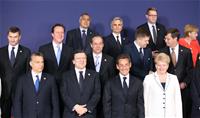 Then it is not clear why, in spite of the realisation of this fact, the financial ministry's forecast for the economic growth is much more optimistic than that of the Commission. Therefore, a peer review would sober down at least the Bulgarian government. But the important question is how behind the papers and numbers a working economy could emerge . And the answer is even more important.
Then it is not clear why, in spite of the realisation of this fact, the financial ministry's forecast for the economic growth is much more optimistic than that of the Commission. Therefore, a peer review would sober down at least the Bulgarian government. But the important question is how behind the papers and numbers a working economy could emerge . And the answer is even more important.
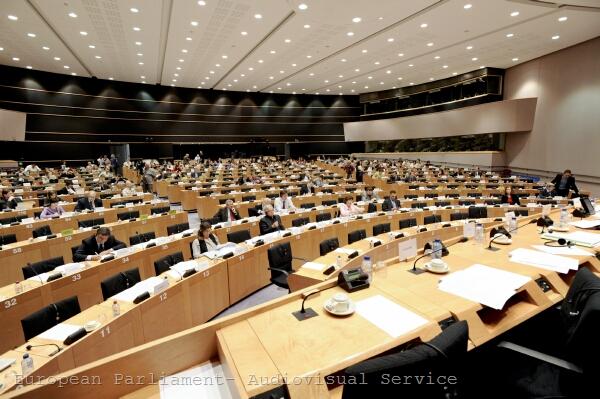 | © European Parliament- Audiovisual Service
| © European Parliament- Audiovisual Service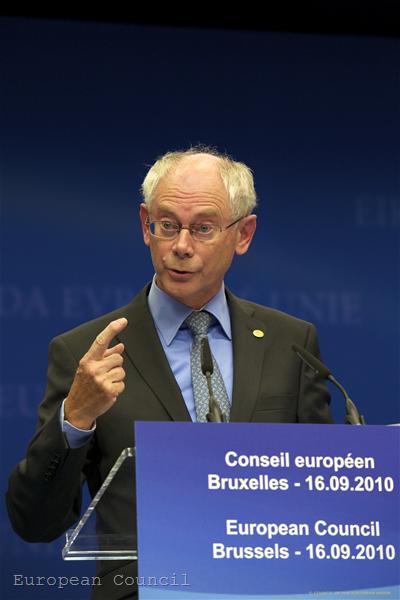 | © European Council
| © European Council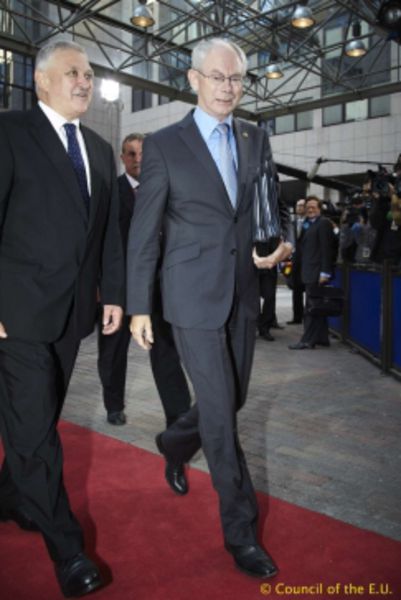 | © The Council of the European Union
| © The Council of the European Union